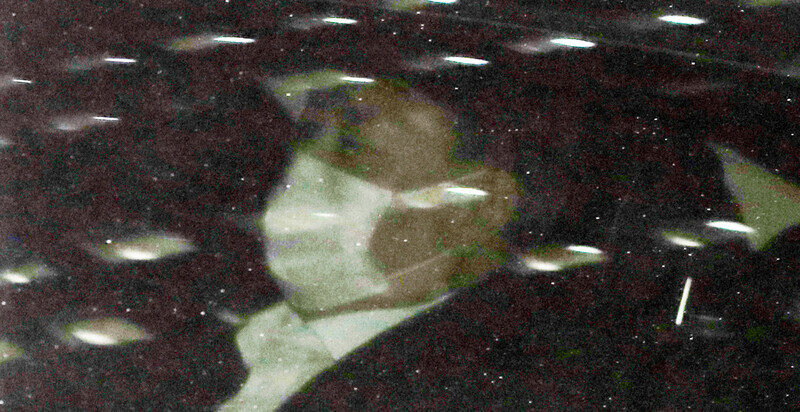hankyoreh
Links to other country sites 다른 나라 사이트 링크
[Editorial] Justice Ministry’s disciplinary committee’s suspension of Yoon Seok-youl was in no way excessive

On Dec. 17, news outlets reported on the Ministry of Justice (MOJ) prosecutor disciplinary committee’s move to suspend Prosecutor General Yoon Seok-youl for two months. The committee explained that “while the individual [acknowledged] improprieties are serious enough on the whole to qualify not only for suspension but for removal according to the disciplinary procedures, many special factors were considered as this is an unprecedented case of disciplinary action against a prosecutor general.”
In other words, while Yoon could have been removed from his position in light of the seriousness of the allegations, the committee decided on a two-month suspension in consideration of factors such as guarantees on his term as prosecutor general. Indeed, a close examination of the summary of the disciplinary review and voting shows that the suspension was by no means excessive.
Regarding allegations that Yoon put judges under surveillance, the committee noted the baleful influence this had on the courts, particularly the “potential for veering public opinion against judges whose rulings are contrary to the prosecutors’ wishes, as well as abuse in the form of propagating an unfavorable image to attack or slander [judges] and turn them into figures of mockery.”
The committee also determined that the prosecutor general had not only abused his authority but also violated the Personal Information Protection Act by ordering the drafting and dissemination of documents detailing the political orientation of judges.
In the case of the Channel A allegations, the committee said that Yoon had failed to fulfill his legal duty to recuse himself from directing the case despite his close relationship with one of the figures in it, senior prosecutor Han Dong-hoon, with whom he was in contact some 2,700 times between February and April. In fact, he was determined to have obstructed the investigation: Yoon halted an inspection by the Supreme Prosecutors’ Office that would have allowed for a swift search and seizure, providing the implicated parties an opportunity to destroy evidence.
Commenting on Yoon’s remarks alluding to plans for a political career, the committee said he had “crossed a line that should never be crossed by a prosecutor under any circumstances.” Stressing that “reason for regulating the terms of prosecutor generals is precisely to ensure political neutrality,” the committee explained, “Since the improprieties in this case were in fact a matter of damage to trust in political neutrality, there was deep consideration as to whether it would be appropriate to guarantee Prosecutor General Yoon’s term.”
In its discussions on what action to take, the disciplinary committee also considered many aspects working in Yoon’s favor, including the intent of laws ensuring prosecutors’ standing, the opinions that emerged among many prosecutors in the wake of the disciplinary action request, and the conclusion of a court ruling on the suspension order.
To date, Yoon’s camp has objected primarily to the disciplinary action procedures. If they believe the disciplinary action to have been unjust, what they should be doing now is publicly clarifying the facts and appropriateness of the actions that served as grounds for that decision. Given the societal repercussions of the case, this should not come down solely to personal legal action.
Please direct comments or questions to [english@hani.co.kr]

Editorial・opinion
![[Editorial] Perilous stakes of Trump’s rhetoric around US troop pullout from Korea [Editorial] Perilous stakes of Trump’s rhetoric around US troop pullout from Korea](https://flexible.img.hani.co.kr/flexible/normal/500/300/imgdb/original/2024/0509/221715238827911.jpg) [Editorial] Perilous stakes of Trump’s rhetoric around US troop pullout from Korea
[Editorial] Perilous stakes of Trump’s rhetoric around US troop pullout from Korea![[Guest essay] Preventing Korean Peninsula from becoming front line of new cold war [Guest essay] Preventing Korean Peninsula from becoming front line of new cold war](https://flexible.img.hani.co.kr/flexible/normal/500/300/imgdb/original/2024/0507/7217150679227807.jpg) [Guest essay] Preventing Korean Peninsula from becoming front line of new cold war
[Guest essay] Preventing Korean Peninsula from becoming front line of new cold war- [Column] The state is back — but is it in business?
- [Column] Life on our Trisolaris
- [Editorial] Penalties for airing allegations against Korea’s first lady endanger free press
- [Editorial] Yoon must halt procurement of SM-3 interceptor missiles
- [Guest essay] Maybe Korea’s rapid population decline is an opportunity, not a crisis
- [Column] Can Yoon steer diplomacy with Russia, China back on track?
- [Column] Season 2 of special prosecutor probe may be coming to Korea soon
- [Column] Park Geun-hye déjà vu in Yoon Suk-yeol
Most viewed articles
- 1Nuclear South Korea? The hidden implication of hints at US troop withdrawal
- 2Korea likely to shave off 1 trillion won from Indonesia’s KF-21 contribution price tag
- 3With Naver’s inside director at Line gone, buyout negotiations appear to be well underway
- 4[Editorial] Perilous stakes of Trump’s rhetoric around US troop pullout from Korea
- 5‘Free Palestine!’: Anti-war protest wave comes to Korean campuses
- 6In Yoon’s Korea, a government ‘of, by and for prosecutors,’ says civic group
- 7[Photo] ‘End the genocide in Gaza’: Students in Korea join global anti-war protest wave
- 8How many more children like Hind Rajab must die by Israel’s hand?
- 9Behind-the-times gender change regulations leave trans Koreans in the lurch
- 10‘We must say no’: Seoul defense chief on Korean, USFK involvement in hypothetical Taiwan crisis